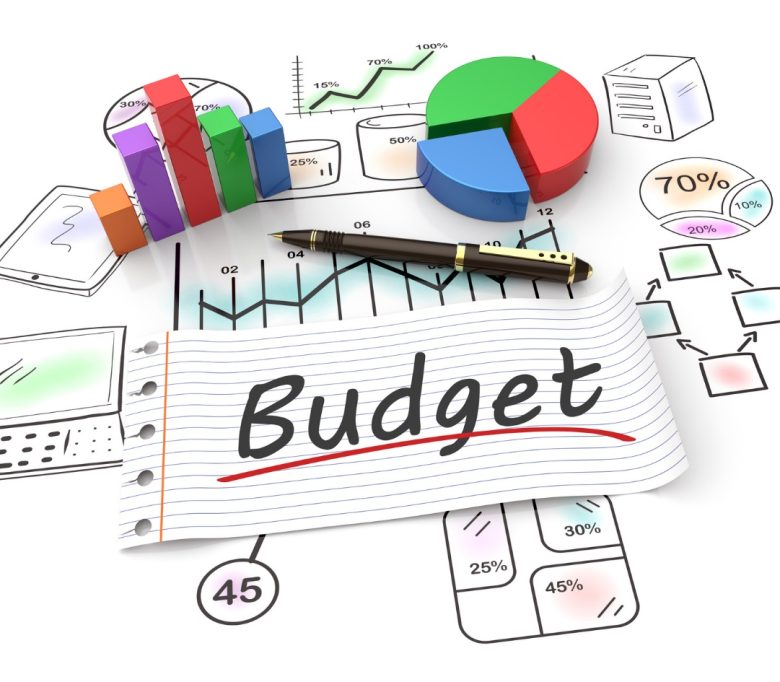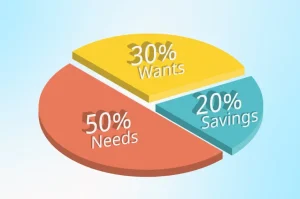Budgeting can help you gain control of your money and set financial goals. By assessing income and expenses, setting financial goals, tracking spending habits, and building an emergency fund while seeking accountability and support systems, you can build financial capability and empowerment.
1. Know Your Fixed and Variable Expenses
Understanding the difference between fixed and variable expenses can help you take charge of your finances. Fixed expenses remain constant month to month, while variable costs vary according to usage or lifestyle choices, such as groceries, gas, and utilities.
Budgeting helps you keep track of and prioritize your expenses. It can also assist in cutting unnecessary spending while saving for unexpected costs. You must budget for fixed expenses, which are unavoidable costs. They include rent or mortgage payments, car payments, student loan repayments, and subscription fees—these expenses form the cornerstone of a household budget.
2. Set Financial Goals
No matter the source or variability of your income, creating and adhering to a budget will enable you to better manage it. By cutting expenses, you could free up funds for savings or debt reduction.
Start tracking your spending with either a budget app or spreadsheet. It might take time and experimentation before finding something you stick with; be patient! Make financial goals for both short- and long-term meaningful to you, such as saving for an emergency fund or saving up for vacation expenses.
3. Track Your Spending
Tracking your spending is one of the key steps towards taking control of your money and helping you set long-term savings goals. By tracking where all your money goes, tracking allows you to see exactly where it goes.
Start by listing all of your expenses, both fixed costs such as rent/mortgage/mortgage payments/cell phone bills/insurance premiums as well as variable costs such as groceries, travel/dining/entertainment costs, or membership dues. At this stage, categorize your expenses to identify where you are spending money. Doing these activities can help reveal areas in which savings could be found.
4. Automate as Much as You Can
Automation is key to effective money management. From software or spreadsheets to tracking your spending on your own, automating is key to successful money management. Establishing a system allows you to balance immediate needs with savings for long-term goals like an emergency fund, vacation costs, or home purchasing costs.
Budgeting may seem restrictive at first glance, but it can actually be an empowering way to steer your finances toward what really matters. Gaining control of your money can help reduce debt, improve credit rating, and qualify for loan terms that lead to financial security here in Denver.
5. Set Aside Money for Savings
Save for those things you want in life—from kayaks to new furniture. Set specific savings goals, and be disciplined in sticking to them; this will make you more protective of your dollars, giving you confidence to purchase something extra without feeling guilty about spending it.
Save at least 20% of your income into savings—this is an excellent starting point and can provide you with an emergency fund or help save for that dream vacation! For maximum effectiveness in reaching this goal, use a budgeting spreadsheet or app that tracks both income and expenditure.
6. Review Your Budget Regularly
Reviewing your budget regularly is one of the best ways to stay on track with your financial goals. A monthly review allows you to assess if expenses match income, as well as identify areas where there may be overspending.
Reviewing your budget also allows you to tailor it to match your lifestyle and achieve financial goals; for instance, if you receive a raise, your savings rate could increase accordingly, or debt repayment plans could accelerate more quickly. In addition, reviewing it allows you to identify any errors (like incorrect bank account balances or spending totals) before they become major issues.
7. Set Limits for Unexpected Expenses
Even the best-laid budget plans can be quickly derailed by unexpected expenses, ranging from inconvenience to financial crises. Preparation is key when it comes to mitigating unexpected expenses. For instance, if you regularly purchase birthday and holiday presents for friends and family members, create a list each year and set gift limits before dividing that by twelve for how much savings each month should be allocated toward savings accounts or emergency savings funds—an emergency savings fund should provide protection in an emergency; three to six months’ worth of expenses should be saved up as a buffer against unexpected financial emergencies.
8. Avoid Overspending
Financially struggling individuals often consider creating and using a budget an essential step toward meeting their financial goals and making the most of their income. Yet budgeting can benefit all people regardless of income source. FOMO (fear of missing out), trying to keep up with social media influencers, or simply wanting a treat can all lead to overspending; however, much of these behaviors can be avoided with self-knowledge and focused effort.
Identification of spending triggers, delayed gratification techniques, and using price comparison apps can all assist individuals in curbing overspending. Another excellent strategy for controlling spending on discretionary items each month is setting spending limits.




